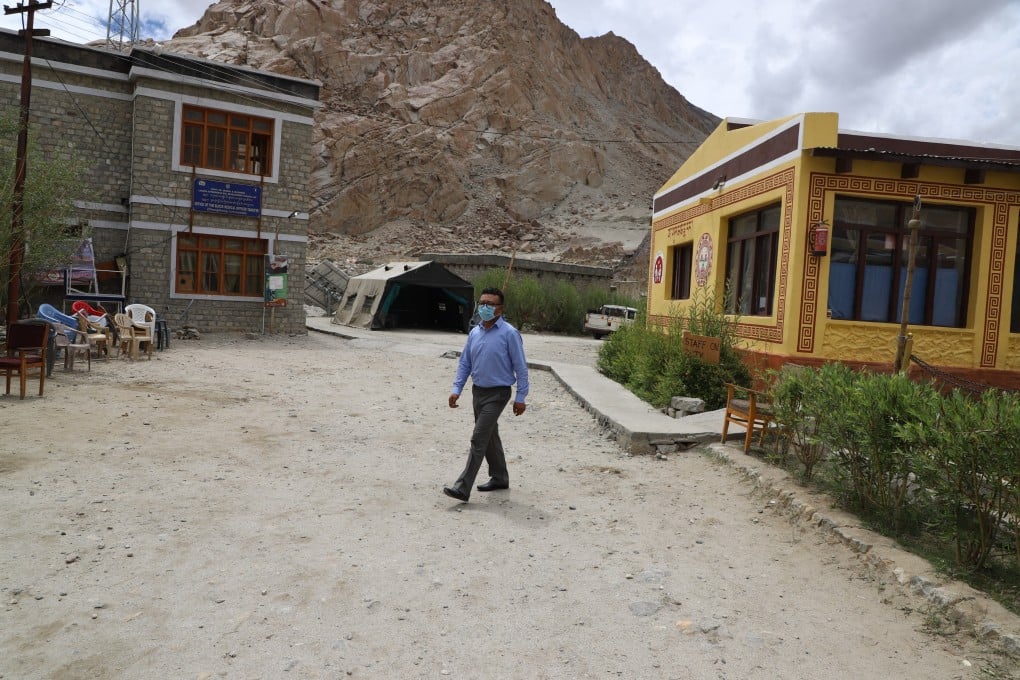China-India border dispute: how one doctor coped with conflict and Covid-19 on the front lines of a face-off between two world powers
- Dr Jigmet Wangchuk knew that life would be tough when he transferred to a remote town in India’s Ladakh region, but little could he have guessed the reality

Fifty-three-year-old Nyima Tenzin was wearing a combat uniform, wrapped in a sleeping bag, when his body was brought to the Chushul Primary Health Centre on August 30, 2020.
Once inside and unwrapped, it could be seen that the soldier was without his right foot, with bones, neurovascular structures and muscles exposed amid the flesh.
Hailing from the Tibetan community in Ladakh, an Indian-administered territory at the far north of the subcontinent, Nyima Tenzin served in the Indian Army’s Special Frontier Force, and had stepped on a 1962-vintage landmine while patrolling the areas along the ever-contentious Line of Actual Control (LAC) that divides India and China.
The Indian Army officials who brought Nyima Tenzin’s body to this tiny hospital south of Pangong Lake, 8km (5 miles) from the LAC and 4,225 metres above sea level, asked 44-year-old Dr Jigmet Wangchuk to perform a postmortem. Wangchuk did not know who Nyima Tenzin was or what had led to his death. The officers told him the victim had died an unnatural death near the porous border with China, nothing more.

When the Ladakh-born doctor called his seniors in Leh, the territory’s capital, to say he lacked the equipment or facilities to conduct a proper postmortem, he was simply told, “You have to do it.”
On May 5, three and a half months before Nyima Tenzin’s body arrived on Wangchuk’s bare-bones examination table, hundreds of Indian and Chinese soldiers engaged in fist fights and stone throwing at the border near Pangong Lake. Dozens were injured, some gravely.